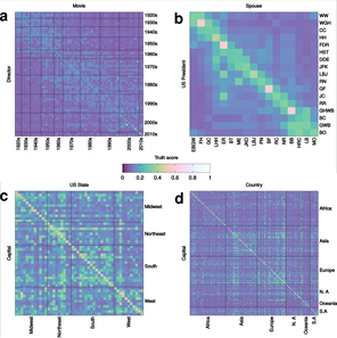 "Network scientists at Indiana University have developed a new computational method that can leverage any body of knowledge to aid in the complex human task of fact-checking. In the first use of this method, IU scientists created a simple computational fact-checker that assigns "truth scores" to statements concerning history, geography and entertainment, as well as random statements drawn from the text of Wikipedia, the well-known online encyclopedia. In multiple experiments, the automated system consistently matched the assessment of human fact-checkers in terms of their certitude about the accuracy of these statements." Read more @ Indiana.edu Comments are closed.
|
Shared ThoughtsTogether, as learners in the education space, we would like to share a selection of what we read and reflect on internally. Categories
All
Archives
January 2016
|
Milpitas Unified School District
|
|

 RSS Feed
RSS Feed
